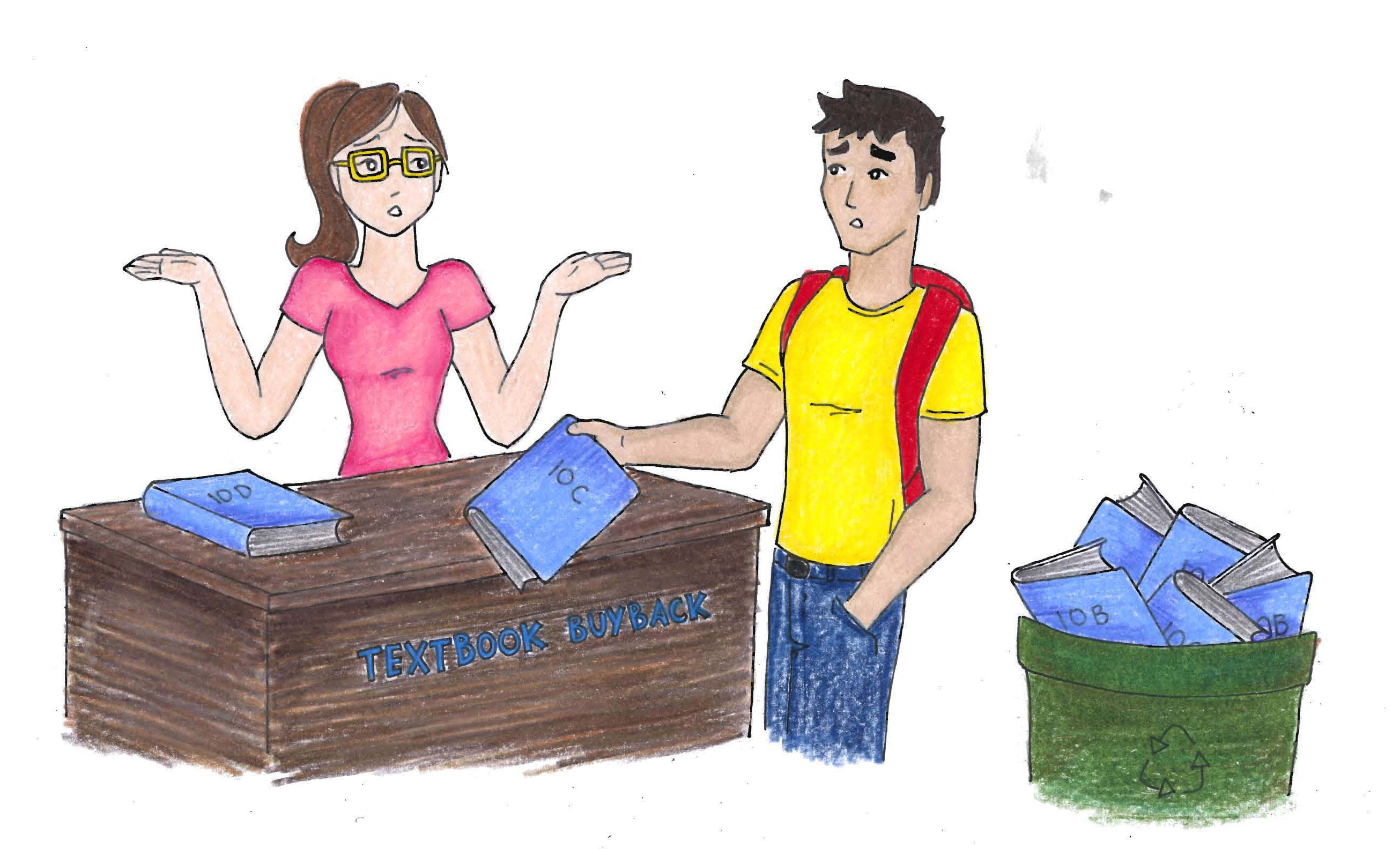Recently, I decided it was time to take my stack of old textbooks to Associated Students UCLA’s textbook buyback to make some extra cash. You can imagine my disappointment when only three of the couple dozen books I took in were actually bought back.
For the rest, the cashier told me that they had moved on to a new edition. I realize that I shouldn’t have waited so long to take them in, but are academic subjects really changing so rapidly that in two years they need new books for nearly every class I’ve taken?
It’s hard to imagine the material taught in introduction to chemistry has changed four times in the last 10 years. Yet “Chemistry: An Introduction to General, Organic, & Biological Chemistry” has indeed gone through four editions in the past decade.
While textbook companies will always release new versions of textbooks to increase their profits, it falls on professors and departments to not switch textbooks unnecessarily frequently. This would save students money as they could buy used books and sell their textbooks for cash after the quarter. The 10th and current edition of the introduction to chemistry book costs $92 for a used book while the ninth edition costs one-third of that amount.
Textbook companies will always release new editions for more money. They are businesses and cannot be expected to change this. So the Undergraduate Students Association Council Financial Supports Commission, headed by Rustom Birdie, has been pushing for a pledge from professors stating that they won’t change the edition of their textbook for a number of quarters.
For most introductory classes, the textbook my parents used would probably be just as good as the ones I’m using. Introductory calculus doesn’t have much new material.
When Birdie met with the Academic Senate to discuss this pledge, he was turned down because this sort of pledge would infringe on academic freedoms that are important for professors, according to Birdie. Since then, his office has started meeting with departments and professors individually to push this pledge.
But with more than 2,000 faculty members, it may take some time to reach them all. This sort of voluntary pledge would be good for all, and professors should be encouraged by department heads in a time when tuition is increasing and students are struggling financially.
Many professors already allow students to use older editions of their textbooks, going out of their way to list page numbers for assignments in multiple editions. All professors should give students the option to use an older version of a textbook to help alleviate the costs of higher education.
The physics department has a committee that makes sure classes in a sequence (like Physics 1A, 1B and 1C) all use the same textbook, saving students money, according to Gary Williams, who teaches an introductory level physics class. But Williams goes further.
He allows students to use an older edition of the class textbook since “changes are relatively minor and the subject is still virtually identical” to what it was in the previous edition.
The only real changes are the examples used and the problems at the end of the chapters. This doesn’t matter as much for his physics class since their homework is completed by students online.
But it would be even better if instead of teaching in two versions, professors just kept an older edition of a textbook, especially in introductory classes that teach the same material year after year.
In addition to pushing for this pledge Birdie’s office has a textbook library that lets students rent books for a quarter for free. But it runs into the issue of textbooks quickly becoming obsolete as well.
While the library has been poorly advertised, it can help students in another way: help us take a load off.
Carrying down a stack of two dozen books to be told that I’m going to be taking back nearly all of them is frustrating because I’ve essentially lost money ““ but it also means I’m going to have to carry those books back to my apartment and store them.
If there was a drop box for book donations right outside ASUCLA’s textbook buyback, I’m sure many students would choose to donate their books to that library instead of lugging them back.
With these old editions of textbooks, USAC could add them to their library, since many professors allow students to use old editions of books. Another option would be to sell the books for extra cash for USAC.
Old editions of textbooks still have the information needed for classes and can save students a lot of money. Having more textbooks available would be a great resource for students.
Don’t mind shelling out for new books? E-mail Ramzanali at aramzanali@media.ucla.edu. Send general comments to opinion@media.ucla.edu.
